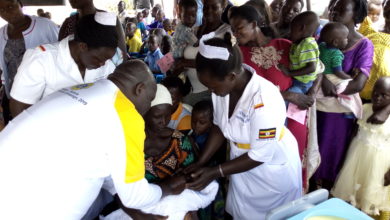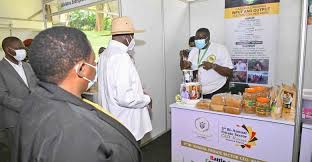Global Politics
SWEDEN-ARE WE SEEING REPEAT OF UGANDA CONSPIRACY AGAIN IN 2021 POLLS
We demand full democracy
By Akena Oscar
The Cambridge Dictionary defines the word conspiracy as: The activity of secretly planning with other people to do something bad or illegal.
STOCKHOLM-Now, let us briefly examine the five events which I referred to in my piece as conspiracies and see whether they meet the criteria of the definition of the word conspiracy, according to the Cambridge dictionary.
1. The 1900 Agreement for instance was entered into by Baganda chiefs and the regents while knowing fully well that the agreement and the claims there in was not only wrong but fraudulent. The chiefs for example knew that the authority over Buganda land was vested culturally in the Bataka. But they nevertheless accepted the view of Bishop Tuker ( A witness signatory of the agreement) that the Bataka were sinners whose names could not be included in the agreement. By the stroke of the pen more than 99.9 % of Baganda lost their ancestral rights to their land. Upto date the Uganda government is still trying to put right what it calls “ historical injustices “ over land and people’s rights within Buganda
In the book, The Story of The Uganda Agreement, by J.V. Wild, 1955 pp 92 the following is how the 1900 Agreement was assessed:
“Johnston has been criticised for bribing the Regents into signing the Agreement, and there can be but little doubt that he did in fact frankly bargain with them both as individuals and leaders of the ruling class of landowners “.
Now, if the above is not the anatomy of conspiracy then please you tell me what it is.
2. The Lancaster House Conference to discuss Uganda Independence was held between September 18, 1961 and October 9, 1961.
To begin with the mere fact that the conference was held in London at all , with Britain being the antagonist against the “fight for Uganda’s independence “ was itself a conspiracy. Britain was the defendant, jury and judge in the prosecution for Uganda’s independence. A transparent negotiation would have taken place either in a neutral third party country or in Uganda itself were the Uganda population were. The political class accepted to come to England primarily to secure their main political objective of acquiring power, regardless to the cost to the people of Uganda.
If you are well aware of the Lancaster house conference you will realise that the negotiations was about handing over day to day political power to the Uganda political class, while Britain retained (officially) control of Uganda through the Uganda Independence Order in Council, 1962. In fact, even Buganda did not succeed to negotiate the much talked about ‘federal status’ at independence. The order in council which came into operation just a few minutes before midnight on 8 October officially cancelled the federal status of Buganda. If fact Uganda did not have a document called a constitution. The governing legal document was referred to simply as the “Instrument of Government” which comprised of the ‘Uganda Independence Constitution Act, 1962, plus ‘The Order in Council, 1962’. These two documents had to be read together, ( The order in council cancelled 6 articles of the Uganda Independence Constitution Act, 1962. Among them was the federal status of Buganda, Bunyoro, Toro and Ankole, powers of amending the Independence Constitution Act, 1962, position of the Kabaka as president etc). Both Dr Obote and the Attorney General Godfrey Binaisa became well aware of serious breaches in Uganda’s independence constitution agreement but they chose not to bring it to the attention of the country. Apparently, the Kabaka only became fully aware of these serious flaws in 1965, and it led directly to the subsequent 1966 Buganda Crises. Now, if this was not a conspiracy then you tell me what it was.
3. The Kabaka Yekka (KY) and Uganda People’s Congress (UPC) Alliance of 1962 was principally negotiated by Daudi Ocheng and Abu Mayanya. According to the Kabaka, “ The only information which I knew about Dr Obote before he was brought to me by my friend Daudi Ocheng, was that he had been injured with a spear while hunting “. ( See The Desecration of My Kingdom, by Kabaka Mutesa). The central point of the KY/UPC agreement was the acceptance by both KY and UPC that direct elections would not be held in Buganda. During the Lancaster House Conference the Kabaka argued for indirect election in Buganda and this was accepted by the UPC as a “pragmatic solution” . However, the DP which represented the majority of the Buganda electorates objected to this but to no avail. As a consequence most people in Buganda simply stayed away from the election. One KY MP was elected by a total of 35 votes! The Kabaka’s government virtually made it an offence to be a DP supporter. Both Dr Obote and Kabaka Mutesa the two principles of the alliance knew that the alliance principles was undemocratic but they committed the country to it never the less, and with disastrous consequences. If this was not a conspiracy, then you tell me what it was.
4. The 1979 Ugandan National Liberation Front (UNLF) government was formed after a conference of Ugandan exiles who gathered in the Tanzanian city of Moshi in 1979 to discuss the post Amin governance of Uganda. The moto of the UNLF was “We Must All Go Home”. Sure enough after Iddi Amin was overthrown these groups of exiles streamed back into the country and immediately descended into distributing the spoils of war,( property of Uganda government and people). The UNLF government instead of calling for a National Conference to consult Ugandans on how they wished to be governed, given that the consensus had long prior been broken, went ahead and organised election barely a year after the chaos and war to overthrow Iddi Amin’s government. And yet the UNLF famously comprised of professors and great legal minds of Uganda who knew fully well that what they were doing was first and foremost advancing their political class interest. Many must have known that their actions was dangerous and would most likely plunge the country into turmoil again however they continued regardless, with disastrous consequences. Now, if this was not conspiracy then you tell me what it was.
5. Finally, you surely wouldn’t want me to belabour the point that the Luwero Bush War was famously a conspiracy of 27 former UNLA soldiers. We have all witnessed and continue to live through our county’s worst upheavals over the past thirty five years.
- And very finally Mr Opwonya, I do not get what you mean when you say “anyone who believes in conspiracies may as well go and enter a witchdoctor’s hut for his political analysis “. What exactly do you mean in that statement, is it your intention to refute the existence of conspiracies, even when it is clearly listed in the dictionary as a word describing a particular set of activities? Or did you confuse my reference to conspiracy with conspiracy theory?
Please kindly explain.
Thank you.




